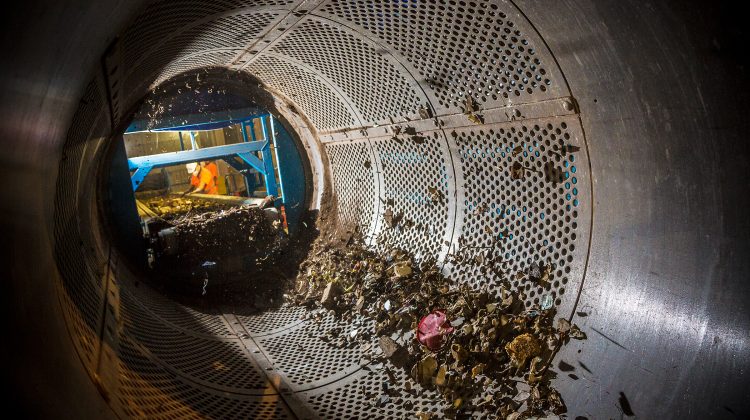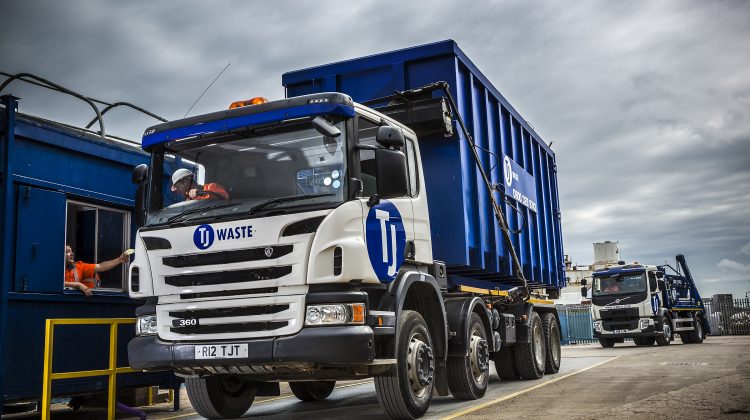If you recycle less than 100% of your recyclable items, now’s the time to make a change! With more and more companies striving to achieve carbon-neutral status, it’s your responsibility to make every effort to direct all waste materials down the most appropriate route for their type.
As the population grows year on year, the negative impact we’re having on the environment increases too. We need to take responsibility for ourselves, to ensure that each and every one of us is doing all we can to keep our carbon footprint as low as possible. Simple things like recycling everything we can and making sure that we are recycling properly will go a long way to help.
Get workplace recycling right
This is extremely important as the commercial sector produces huge amounts of waste and if it is not being processed and segregated correctly, this will have a detrimental effect on the environment. It’s also important for all employees to pull together in the bid to recycle, just as they do at home. Follow our top tips:
- Find out what recycling processes your organisation has in place – if these are minimal, could more be implemented or existing ones improved?
- It’s a good idea for each room to have a general waste bin and mixed recyclables bin. To help, you could print out a label listing which items are recyclable and stick it to the bin so there’s no confusion.
- Always ensure all recyclable items go into the bins clean and dry.
- Don’t be lazy and throw dirty tins, jars and bottles into the general waste bin rather than clean them!
- Find out if your company offers recycling of other items such as WEEE (Waste Electrical and Electronic Equipment), batteries and glass.
- If you’re part of a managed building, ask the management about the recycling processes and be sure to follow them.
Construction / manufacturing companies
In addition to all the standard recycling procedures, construction and manufacturing companies need to consider what waste materials they generate and whether these could be recycled. Most things can!
TJ works with several partners to provide specialist services to ensure certain materials are recycled. Examples of this include:
- Plastic ice cream tubs
- Plasterboard
- Wood
- Metal
- Mattresses
TJ also offers an outlet for any rubble or hardcore that construction, building or landscaping companies may generate. We’ll take it off your hands free of charge! Unwanted concrete, bricks, paving slabs and stone can be dropped off Monday to Friday, 8am – 5pm at our Butser Quarry, which is located on the A3 at Petersfield, GU31 5SP.
Some places charge per bag/tonne to dispose of this type of waste, so this could be the ideal solution for your business going forward. To unload, you simply need to hold a waste carrier’s licence and be wearing a hard hat, hi-vis top and steel toed boots to ensure your safety. All hardcore will be crushed and used to make our in-house recycled aggregate, iBlend.
How else can my business reduce its carbon footprint?
- Reduce your energy usage – switch off lights, monitors and equipment when not in use.
- Use energy efficient light bulbs or LED lighting.
- Try to use less paper in office environments.
- Buy recycled paper where you can.
- Opt for laptops instead of desktop computers – they can use up to 80% less power!
- Use rechargeable batteries instead of disposable.
- Make sure your company appliances – fridges, dishwashers, kettles, toasters and microwaves are energy efficient models.
- Consider using ceiling fans rather than air conditioning which is power hungry.
- Think about your heating system – is it efficient? Is the building well insulated? These factors will help keep costs and emissions to a minimum.
- Encourage employees to walk or cycle to work where possible to reduce car usage.
- Consider electric cars for company car schemes.
Household recycling
Recycling at home and when out and about is just as important as in the workplace.
- Make sure you are recycling all possible items – paper, cardboard, plastic bottles, metal tins and cans and aerosols.
- Make sure the recyclable items go into the bin clean and dry.
- Check out your local council website to confirm what items are locally recycled – different regions are able to process different types of plastics in particular, so be sure to check so as not to contaminate the whole bin with non-recyclable items.
- Some councils offer kerbside glass collections, but many don’t – if yours doesn’t, be sure to take all your clean, dry glass containers to your local bring bank.
- Any unwanted clothing or textiles should be taken to your local bring bank where it can be reused, repurposed or recycled.
- If you have a recyclable item to dispose of in public but there are no recycling bins, consider taking it home to recycle.
Developments in plastic recycling
Plastic waste is one of the biggest concerns in the environmental world. Globally, a million plastic bottles are purchased per minute and most of this plastic ends up in the ocean. In a bid to combat this, manufacturers are now offering mineral water in metal cans in an attempt to lower the amount of plastic waste we are generating.
TJ is always looking for new ways to recycle different types of plastic and has plans to get a plastic recycling trial underway soon. In the meantime, they already work with the Final Straw Foundation, a community interest company whose work revolves around highlighting the impact of plastic pollution on our environment, local seas and wider oceans.
TJ can help you go green!
We offer a varied and flexible commercial waste management service and are happy to chat through the most appropriate options for your business – every company is different and will require a slightly tailored approach.
We also offer skip and grab hire for one-off projects. Rest assured that all of our skips and grab loads are taken to our materials recovery facilities across the south coast and thoroughly sorted to ensure every recyclable item is extracted and directed to the right place. We are proud advocates of diverting waste from landfill and endeavour to recycle up to 100% of the waste that we handle.
Get an instant online quote for skip hire today and get in touch to have a chat about your company’s needs and how we can help.








